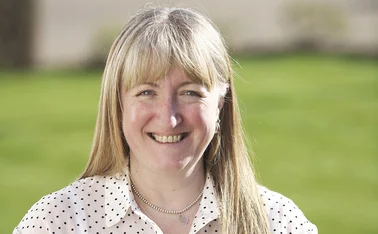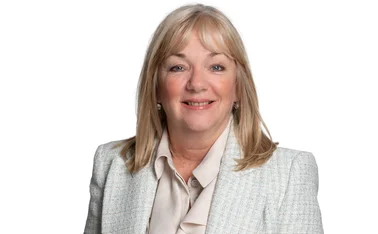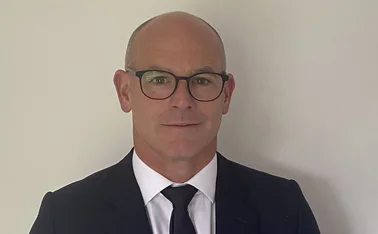
Broking success: Two’s company
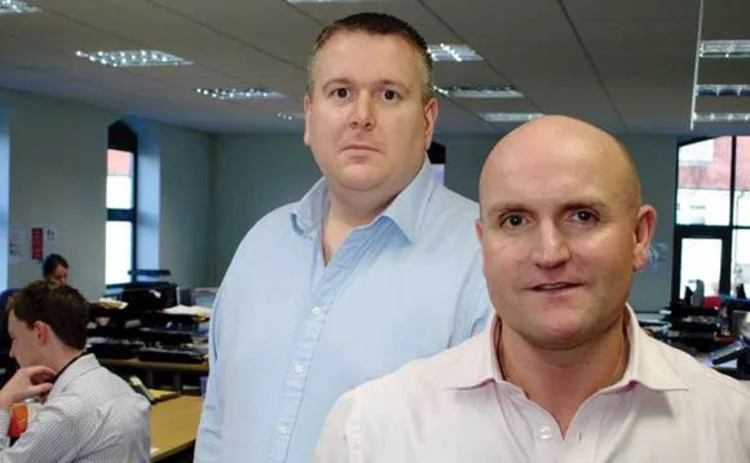
Romero Insurance Brokers’ Justin Romero-Trigo and Simon Mabb tell Andrew Pearce why chartered status is so important and how they have managed to thrive during the recession
▶ What is Romero’s background?
Justin: I set the firm up in 1997 having worked at [broker] Hart & Co. The same year Hart & Co was sold to Investec – I didn’t want to go into the arena of 20-30,000 employees where you couldn’t make a difference, so I set up Romero.
▶ What are Romero’s main lines of business?
Justin: Romero is a £40m GWP business, including [specialist separate firms] Nightclub Direct and Millennium Leisure and Club Insure. The specialisms are varied, we are heavily into construction and property owners. We’ve also got a separate brand called Educator, [in which] we do colleges and independent schools and we also do some very big retail clients.
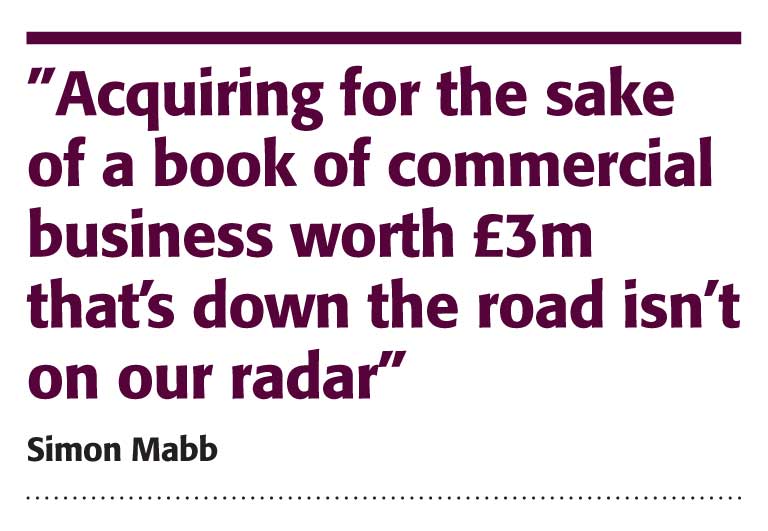 ▶ What proportion of Romero’s business is schemes-based and what makes a scheme work?
▶ What proportion of Romero’s business is schemes-based and what makes a scheme work?
Simon: Heading towards 20%. A lot of people think they can write a scheme but it’s about adding value to that customer base and doing something different than a bog-standard broker. A scheme has got to do more than knock 10% off the conventional rate.
▶ Does being chartered make a difference for clients?
Justin: Completely, a lot of clients won’t know what it’s about because their broker, who isn’t of that status, won’t mention it and think they can get away with it. We have to up our game and we’ve done that and will continue to do that.
 Simon: We have at least one chartered broker in every office.
Simon: We have at least one chartered broker in every office.
Justin: There won’t be many brokers that can say that.
▶ How do you identify new opportunities?
Justin: Sectors that aren’t congested, where we can go in and do something better. If we say we’re going to do something, we’ll do it, we always do it, we always deliver. You can guarantee that we will deliver. If we tell you we will give you £5m we will give you £5m. There are a lot of brokers out there that say they’re going to do something and for whatever reason the wheels come off and it collapses and they never get to stage B. We’re a firm believer that you put your money where your mouth is.
▶ Are any acquisitions on the horizon?
Justin: The view over the next 12 months is to grow significantly in Manchester and Halifax and we are opening up in the North East – we would like to think April/May time. The other cities that we like to look at, either for this year or next, would be a Sheffield/Nottingham base. Within those five offices we can be really successful.
Simon: Acquiring for the sake of a book of commercial business worth £3m that’s down the road isn’t on our radar because you end up with a business you don’t want.
▶ How has Romero adapted to the economic climate?
Justin: We’ve cut our cloth accordingly in terms of pay and cars. We’re in it together with the clients as well. Even in these tough conditions, where a number of brokers have seen their books of business go down, ours has never. We can organically go out and pull up some trees.
Simon: Through the recession period, Romero’s income grew by 60%. Often any drop-off has been replaced by new business. There’s masses of building projects in Leeds that have been mothballed for four years. You’ve got clients paying £120,000 premiums, suddenly the following year they’re paying £25,000. One big client disappeared overnight so we had to write new business to nearly stand still. Once we washed that though then the new business started to push on.
 ▶ What have been the main growth areas?
▶ What have been the main growth areas?
Justin: Retail and manufacturing.
Simon: We have been able to take our claims model and add value for those [clients] that need to save money. If you don’t manage your claims then your costs go through the roof. Suddenly insurance has become a bigger part of their spend – if you can help your clients control that a little bit better than it makes a big difference on their bottom line.
▶ How have you improved your claims model?
 Simon: Insurers have been bitten during this recession. They’re looking at cost, their biggest cost is claims, so if they can nip off a percent here or there, that’s £100m territory. Conversely, that’s when you need your broker to work that bit harder to make sure you’re not that 1% on the border not getting paid.
Simon: Insurers have been bitten during this recession. They’re looking at cost, their biggest cost is claims, so if they can nip off a percent here or there, that’s £100m territory. Conversely, that’s when you need your broker to work that bit harder to make sure you’re not that 1% on the border not getting paid.
A lot of brokers will just send it into the insurer and they [the insurer] is saying ‘Mr Client, very sorry but your claim is not being paid’. We don’t accept that… We picked up a piece of business recently where the claim had been declined six months previously and the broker hadn’t even told the client.
▶ What would you change about broking?
Simon: There are loads of us doing a great job but there are some flogging mortgages who happen to do a household product and they’re giving bad advice which is knocking the reputation of brokers. Chartered status is really important – the likes of Biba need to get a bit more teeth because anyone can sign a cheque and become a member. The consumer doesn’t understand whether you’re a Biba broker, not a Biba broker or whatever. There’s a lot the CII, Biba and the like can do to try and assist us as an industry.
▶ What would you like the incoming Financial Conduct Authority to do?
Simon: [Regulators] tried to concentrate on the big boys and [they] are the ones that run really well – they’ve got compliance teams. It’s some of the other people that are probably a bit shady underneath that they really need to concentrate on.
▶ Where will Romero be in two years?
Justin: It would be nice to have those five offices in the regions, get the GWP up to £60m, another two or three new schemes and keep attracting quality individuals. We want those quality people to come here and develop. At Romero, the sky’s the limit.
▶ Describe your business relationship
Justin: The results speak for themselves – we bounce a lot of ideas off each other. It’s really important that you trust each other implicitly – he watches my back, I watch his.
Simon: I turned up in June 2008 and within three months we were in a recession. I remember looking at the P&L stuff that was coming in during January and February and thinking I’d be getting rid of me! Once you’re in it you’ve just got to knuckle down and battle it out. We didn’t lose a single person during the recession, we’ve got a lot of our competitors around here laying people off even now.
▶ How have you tackled the soft market?
Justin: I see this as the norm now. Quite a few underwriters have done various schemes too cheaply and they’ve caught a cold. I can’t see any uplift in the rates. There’s still some dual pricing which can be quite infuriating as a broker. You’ve got a really good piece of renewal business and insurers are trying to put a 5% increase on. It’s run like a dream and you’re saying ‘what are you doing?’
▶ Have you had a few tough conversations with insurers?
Simon: If you end up at the point where they’re sticking their head in the sand, often you have no other choice but to move [a piece of business]. Because if you don’t you don’t know the client hasn’t already got another alternative price. It’s quite the norm now for clients to go out and get alternatives. And if that broker has done a good job on the new business, they’re going to be struggling to justify [that price]. ‘Hang on a minute, have you been robbing me for the last couple of years?’ We will have those conversations.
▶ Romero is suing former corporate manager Andrew Templeton and Eastwood & Partners Insurance Brokers for an alleged breach of contract. Can you comment?
Simon: We’re probably not in a position to comment at this stage while on-going legal matters are happening.
Only users who have a paid subscription or are part of a corporate subscription are able to print or copy content.
To access these options, along with all other subscription benefits, please contact info@insuranceage.co.uk or view our subscription options here: https://subscriptions.insuranceage.co.uk/subscribe
You are currently unable to print this content. Please contact info@insuranceage.co.uk to find out more.
You are currently unable to copy this content. Please contact info@insuranceage.co.uk to find out more.
Copyright Infopro Digital Limited. All rights reserved.
As outlined in our terms and conditions, https://www.infopro-digital.com/terms-and-conditions/subscriptions/ (point 2.4), printing is limited to a single copy.
If you would like to purchase additional rights please email info@insuranceage.co.uk
Copyright Infopro Digital Limited. All rights reserved.
You may share this content using our article tools. As outlined in our terms and conditions, https://www.infopro-digital.com/terms-and-conditions/subscriptions/ (clause 2.4), an Authorised User may only make one copy of the materials for their own personal use. You must also comply with the restrictions in clause 2.5.
If you would like to purchase additional rights please email info@insuranceage.co.uk

